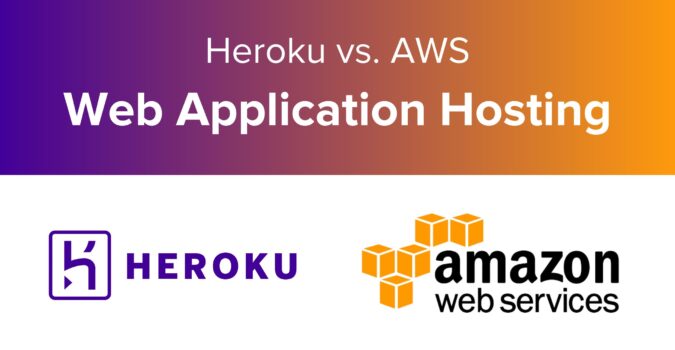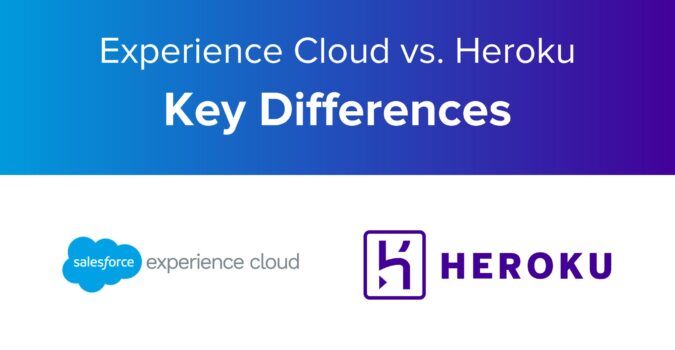Realizing the Benefits of Heroku and AI
Artificial intelligence (AI) has become the new norm for innovation, driving advancements across all industries. Thanks to platforms like Heroku, harnessing the power of AI to create transformative applications is now more accessible than ever for developers and businesses alike.
This platform-as-a-service (PaaS) radically changes how developers build, deploy, and scale AI applications, offering a seamless, managed environment that significantly reduces the complexity traditionally associated with such tasks.
In this article, we explore using Heroku and AI to create next-gen applications, making the development process faster, easier, and more efficient for developers and businesses.
Why Choose Heroku for AI?
Heroku stands out as a preferred platform for deploying AI applications mainly because of the factors that have always made it attractive for various projects—ease of use and efficient management—which are particularly beneficial for AI applications.
Over the past few years, AI application development has changed significantly. Previously, developers spent most of their time crafting AI components. The focus has shifted to developing apps, where developers leverage out-of-the-box AI models via APIs.
The Heroku platform makes it much more efficient for these developers to deploy their applications into the cloud. This synergy between Heroku and powerful AI APIs like those from OpenAI results in very rapid AI app development, streamlining the process from conception to deployment.
Enabling developers to focus on building valuable applications without the hassle of managing infrastructure, Heroku’s managed environment automatically handles DevOps tasks like server setup, scaling, and security, speeding up the process of turning an idea into a live application.
Additionally, many advanced AI models now come with robust web APIs, further easing integration on established platforms like Heroku.
The ability to handle more extensive and complex projects was introduced with larger dyno types. These enhancements are crucial for AI applications that require a lot of computing power and memory for long-running processes.
As your AI projects grow in scale, Heroku adapts, ensuring your applications always have the resources they need to perform well. This commitment to scalability indicates Heroku’s dedication to supporting advanced AI applications.
It supports several programming languages important to AI, such as Python and Node.js, and its mainstay support for Ruby. These languages are popular in AI because they offer extensive libraries and frameworks that aid machine learning and natural language processing. This robust language support makes it easy for developers to integrate the latest AI tools and libraries.
Combining an easy-to-use environment with scalable resources and strong programming language support, Heroku effectively meets the needs of developers working on cutting-edge AI applications. This integration simplifies the development process and accelerates the time to market for innovative AI solutions.
How to Build AI Applications on Heroku
Building AI applications on Heroku is efficient and straightforward. Developers can use open-source libraries and frameworks to create AI models.
For instance, Heroku’s ability to support API integrations with large language models, such as OpenAI, allows developers to access advanced AI functionalities in their applications. These could range from generating human-like text with GPT models to understanding and processing natural language inputs.
Heroku’s ecosystem embraces powerful tools such as pg vector, a PostgreSQL extension that transforms it into a vector database, aligning perfectly with the demands of modern AI applications. This feature is instrumental for applications employing Retrieval-Augmented Generation (RAG) architecture, which relies on similarity search operations to enhance information generation by retrieving relevant data stored as numerical vectors. Integrating pg vector into Heroku highlights the platform’s dedication to equipping developers with advanced tools for crafting state-of-the-art AI solutions, facilitating the creation of more intelligent and responsive applications.
In December 2024, Heroku introduced Managed Inference and Agents, providing access to leading AI models and simplifying the integration of AI into applications. This development enhances the platform’s capabilities in deploying AI applications.
Heroku Reference Applications: A Gateway to Learning
One of the most valuable resources available to developers on Heroku is their official Reference Applications. These open-source projects offer practical examples of building and deploying AI applications on the platform. By examining these Reference Applications, developers can gain insights into best practices, architectural patterns, and innovative approaches to AI development.
For instance, applications that utilize the OpenAI API for generating content or implementing function calls demonstrate the power of integrating large language models with Heroku-hosted applications.
How to Use Heroku for AI-Driven Innovation
With a history of building hundreds of applications on Heroku, LaunchPad Lab stands at the forefront of leveraging this powerful platform to bring AI-driven solutions to life.
Our experience showcases our proficiency in navigating the Heroku ecosystem and our commitment to delivering cutting-edge, AI-enhanced applications that drive business growth, optimize operations, and elevate user experiences. Here are a few use cases for Heroku + AI applications we’ve explored so far:
- Chatbots: Utilizing a vector database within Heroku’s PostgreSQL service, this chatbot leverages OpenAI’s capabilities for an enhanced user-friendly search function. It processes a vast amount of content to provide precise responses to user queries, exemplifying the power of AI to streamline information retrieval.
- Smart Document Processing: This application combines document processing tools with AI to extract and understand text from varied formats. Leveraging tools like AWS Textract, coupled with OpenAI for deeper content analysis, this system built on Heroku processes disparate document types from multiple sources, making it ideal for industries like finance and healthcare, where document standardization is crucial.
- Financial Statement Analysis: This tool uses AI to gather and structure financial bank and payment statements. By leveraging OpenAI’s API within Heroku’s Shield environment, it securely parses financial data by individual and returns a structured format that is easy to analyze and reconcile across balances.
These use cases demonstrate Heroku’s robust capabilities in supporting advanced AI functionalities and highlight how AI can be tailored to meet specific industry needs, enhancing operational efficiency and decision-making processes.
The Future of AI Development on Heroku
As AI transitions from an emerging technology to an integral part of modern applications, developers need a platform that simplifies deployment, scales efficiently, and integrates seamlessly with advanced AI tools. Heroku continues to evolve, offering new AI-powered capabilities such as Managed Inference, Agents, and support for vector databases like pgvector. These features enable developers to build and scale intelligent applications with minimal infrastructure overhead.
Whether enhancing customer experiences with AI-driven insights, building applications that leverage natural language processing, or integrating machine learning models into your workflows, Heroku provides a flexible and reliable foundation. By focusing on developer-friendly solutions, seamless integrations, and scalable infrastructure, Heroku ensures that AI applications are not just possible—but practical, efficient, and ready for the real world.
As AI-driven innovation accelerates, platforms like Heroku will remain at the forefront, enabling businesses to turn AI potential into tangible success.
Now is the time to explore how Heroku can streamline your AI-powered application development and keep your business ahead in the ever-evolving tech landscape.
Ship Products to Market Fast with Heroku and AI
At LaunchPad Lab, our consultants have deep expertise in leveraging Heroku and AI. Schedule a consultation with one of our experts to learn how we can help ship your projects faster.



